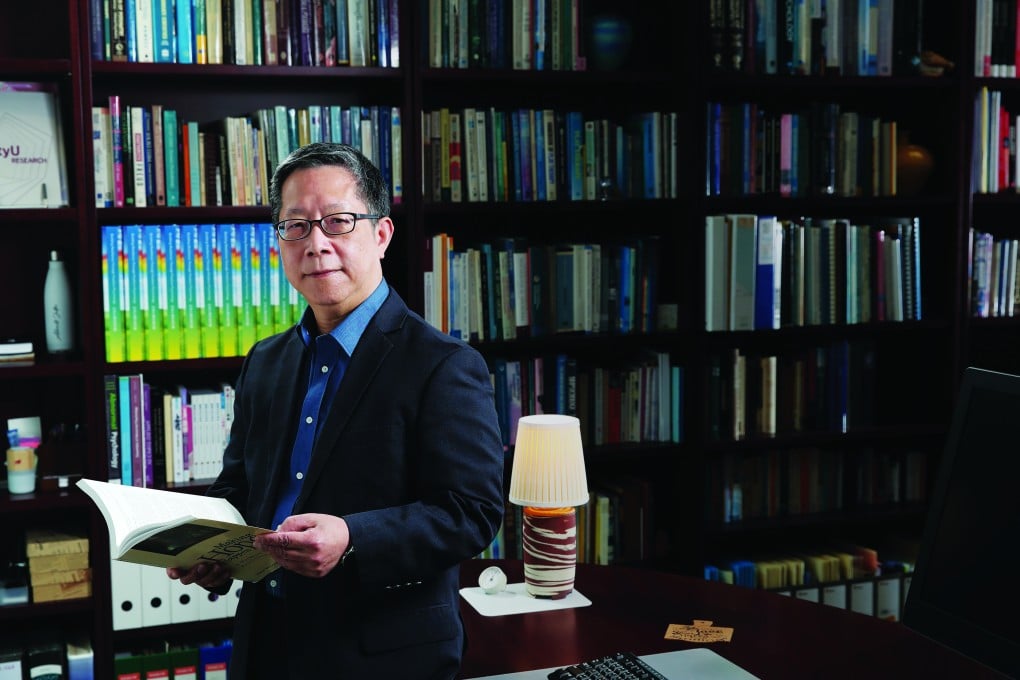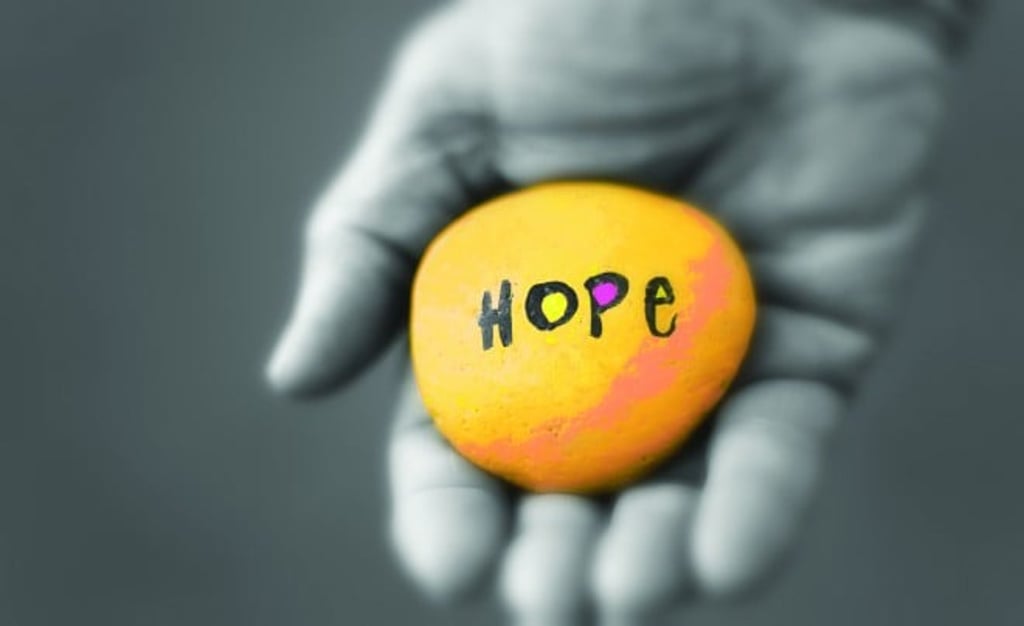Looking for Hope to Help Patients Cope with Life Altering Situations
The road looks tough for those facing a terminal diagnosis, incarceration or even a global pandemic, but there is help in the form that Professor Samuel HO, Head of CityU’s Department of Social and Behavioural Sciences, advocates, which guides them with hope-based treatments that focus on the future

[Sponsored Article]
Hope-based research is not a new concept in clinical psychology, but it was not practised widely in Asia when Professor Samuel HO introduced it to Hong Kong in the early 2000s. The famous American psychologist Professor Rick SNYDER was the first to coin the term “hope theory” in psychology and his work has since received widespread traction in practice and has been adopted by other clinical psychologists. Snyder’s theory became a pivotal part of Ho’s work in traumatology and resilience – an area the CityU psychology professor has dedicated his entire career to.
Ho’s area of expertise leans toward developing in-depth knowledge about factors that facilitate adjustments to life-threatening illnesses, such as cancer, and traumatic events like the COVID-19 epidemic.
Treating Symptoms or the Root?
“Clinical psychologists focus mainly on symptoms, which are ‘the negative things’ that require a lot of problem-solving,” says Ho. “The usual way to help patients cope with a problem is to improve their problem-solving skills.”
Whereas the usual practice on symptom treatments focuses on the “now”, hope-based treatments focus on the future. Hope in this context does not refer to a religious belief but rather a cognitive disposition based on setting goals, identifying ways to reach those goals and the rewards for achieving them.
The Beginning
Ho started out as a clinical psychologist at the Children’s Cancer Foundation and learnt from his patients, their parents and caregivers on how to cope with very difficult situations. He obtained his PhD in Australia where he also worked in the bone marrow transplantation ward in the Royal Melbourne Hospital. After his time down under, Ho returned to Hong Kong as a faculty member in psychology. Part of his job entailed inviting speakers to his classes. This was where Snyder’s hope study was first introduced by the doctor himself.
“Frankly, at that time I wasn’t very impressed with his presentation. I suppose I was confused about his concept of hope and its contrast with our problem-solving kind of intervention. Later though, when I went to the US and attended the American Psychological Association annual conference and encountered Snyder again, we sat down and had a long and very meaningful conversation.”
It was widely known in professional circles that Snyder suffered from a consistent chest pain himself. “But he continued to function very well despite his adversity and pain, and that was how he explained to me his concept of hope and how he used it to cope with his chronic illness.”
It was a moment of revelation for Ho. “In essence, when people encounter a difficulty, they think about how to solve the current problem. Which presents the problem that at that time, few people think about what they can do after the difficulty – and that is the whole base of future-oriented treatments,” Ho explains. “This was a new concept to me and to many practitioners and patients in Asia.”
It was after this that Ho came up with the 12-item Adult Trait Hope Scale, which is rated on the basis of an 8-point Likert scale (1 = definitely false to 8 = definitely true) used to measure hope according to the model of Snyder et al. Ho’s Chinese Hope Scale has been adopted by medical doctors, psychologists, nurses, occupational therapists and other allied health professionals in some major hospitals in Hong Kong.
Theory in Practice
The introduction of Snyder’s hope theory opened new doors for Ho. He received a call one day from a doctor at the Queen Mary Hospital in Pok Fu Lam. “They were setting up a genetic colon cancer database. This was new at the time.” The surgeon MD wanted to involve a psychologist in the team and Ho helped implement the concept of hope intervention into this collaboration.

The subsequent research touched on the efficacy of hope-based treatments and examined people’s motivation once they receive news of a potential debilitating disease. “The major finding is that some people’s first reaction is resignation. People do self-evaluation about the pros and cons to make further decisions. In that way, we help them with the pros and cons and change their mindset. Some people are already open about engaging in challenging procedures because they already have a future-oriented mentality. They think, ‘If I get results, I can do something to help myself and my family members’.”
Ho’s research drew the attention of Hong Kong Correctional Services Department and its team of psychologists who approached the professor with the aim of establishing a novel gender-responsive treatment facility for women offenders. Together with Ho, they came up with a Psychological Gymnasium.
This psychological gym differs from the traditional one-on-one or group therapy treatment. Emphasis is put on cognitive behavioural activities such as art therapy and drawing classes and is hence different from the law mode correctional setting. His research improved the model of rehabilitation in correctional settings in Hong Kong and Asia.

Beyond the Immediate Circle
Ho’s hope-based research and treatments also work with carers, going above and beyond just the patients and clinicians. “For the carers, they are also subjected to very difficult situations. Generally speaking, the cause of hope is also applicable to them.”
The psychologist shares the case of a secondary school student in Taiwan who was diagnosed with a terminal illness. “The girl in question has almost completely given up on life, however the parents knew that undergoing treatment is very important. So they forced the child to comply with the medical treatment. As part of our hope-based goal-oriented approach, we found out that for the patient there was only one thing she wanted: to return to school to spend one day with her friends.”
Ho spoke to the oncologist, the parents and the school administrators to come up with a goal that if the patient complied with the medical treatment and her condition improved, they would help her go back to school for a day.
Having incentives in place is important, Ho adds. “We start off with setting up a few strategies in order to achieve the goal.” In this particular case, that included establishing communication between the patient and her peers at school through a messaging app. Eventually, the girl had her day at school.
Ho credits the patients, the caregivers as well as the academic environment for giving him a multidisciplinary setting that has helped him understand the different approaches and concepts in his work.
“The most challenging part is that I encounter people with very, very difficult situations,” Ho shares. “People who have severe disfigurement, people with terminal illness, people with life sentences. So, even under very difficult circumstances when we explore different topics, including the topic of hope, they are the ones who have taught me how to cope with some extremely hopeless situation(s). The hope approach works, and through it is how I am able to assist as many as I have over the course of my career.”